Uploaded by Rafael Popper 5454 days ago File's language: English Views: 2336
The Manchester Institute of Innovation Research (Formerly PREST) are pleased to provide you with details of our 5 day short course Foresight: Horizon-Scanning and Scenarios.
Foresight - Beyond business as usual is a course for sponsors and practitioners
(27 June - 1 July, 2011)
While the world seems to have escaped a deep depression, the reverberations of the economic crisis will take a long time to die down. Even if we do not have a “double-dip” and long period of slow growth, many countries, industries and public services face uncertain and difficult futures. This is at a time when globalisation, demographic, environmental and other trends are creating new pressures on these industries and services. This is evidently a moment in which we need to reflect upon all sorts of assumptions when it comes to plans, policies, and strategies for the long-term future.
The Manchester Institute of Innovation Research (MIoIR - formerly PREST) has been running an annual foresight training course for over a decade. Our twelfth course, in 2011, will explore ways in which foresight may be used to help decision-makers confronted with the uncertainties outlined above. What do we have to look for on and over the horizon? How horizon-scanning be systematically organised, and how can the results be made really useful for decision-makers? How do we relate such work to scenario analysis and planning?
The course will provide a concentrated and intensive, practically-orientated learning experience, explicating why, and how, we should apply such methods. We will, this year, be particularly concerned with moving beyond “narrow” technology Foresight, to considering interrelations between social and environmental issues, and the application of Foresight tools to topics such as health and energy security. The course has a strong emphasis on the application of foresight to inform strategies, policies, and priorities. Coordinated lectures and practical work will enable participants to experience the relevance and the realities of foresight activity.
Participants will learn how to recognise and interpret possible future changes involving, in particular, social, technological, and environmental changes and their interdependencies. The course is aimed at people whose work is liable to affect the future of business, government or Non-Governmental Organisations. For instance, they may work, or expect to work, as: sponsors of foresight projects foresight practitioners entrepreneurs senior managers company directors.
The Institute's unique position in foresight activity has resulted in wide international participation in the course in previous years. This includes people from: Canada, the Caribbean, the Czech Republic, Denmark, Finland, Hungary, Indonesia, Iran, Ireland, Latin America, Luxembourg, Malaysia, Malta, The Netherlands, Norway, Portugal, the Russian Federation, South Africa, South Korea, Spain, Sweden, Thailand, Turkey, the UK and many other countries. The course is residential and is held in our facilities in Manchester. (When necessary, we can extend its reach to participants in other parts of the world by video-streaming the course sessions over the Internet and by providing electronic teaching resources.)
The course draws upon MIoIR's extensive experience of organising, consulting, researching and teaching/training in foresight activities across Europe, Latin America, Africa and the Middle and Far East. We have provided direct assistance to more than a dozen countries' national Foresight exercises, and have longstanding co-operation with the EC and UNIDO.
Structure and content
The course runs over five days. A provisional outline is presented below:
Day 1 - The Mission: how the course is structured to enable participants to influence the future roles their organisations play locally, nationally and globally. the role of foresight in and for a changing world and uncertain future. the origins and various forms taking by foresight in practice, and the resources that are available for practitioners and users. the necessary steps for design and management of foresight exercises of various types.
Day 2 - Model building: how any foresight is dependent on models of one sort or another (not necessarily quantified or simulation approaches). bringing implicit models to the fore, visualising and sharing them. using models to forecast and explore alternatives.
Day 3 - Horizon-scanning: what sorts of information and data do we need to use? How can we organise and structure “raw” intelligence to examine trends, disruptive developments, wild cards, and other features of the future?
Days 4 and 5 - Scenarios: scenarios as mental models varieties of scenario, scenario analysis, and scenario application. how to go about scenario building? how to use scenarios in shaping the future of an organisation?
Teaching staff
Course directors
- Ian Miles (DSSc), Professor of Technology and Social Change and Director of MIoIR
- Ozcan Saritas (PhD), Research Fellow at MIoIR, leader of several projects on horizon-scanning (including studies underway for Rockefeller Foundation and INFO); editor of foresight
- Rafael Popper (PhD researcher) - Director of the foresight and horizon scanning iKNOW project (examining Wild Cards and Weak Signals) and leader of the European Foresight Platform (EFP) Mapping and Evaluation activities.
Other teaching staff from the MIoIR Foresight team are expected to include:
- Dr Jonathan Aylen (MIoIR Director)
- Prof Luke Georghiou - Vice President for Research and Innovation of the University of Manchester and Professor of Science and Technology Policy and Management (MIoIR)
- Prof Denis Loveridge
There will also be several external speakers with distinctive foresight experience, together with use of expertise from other foresight-active groups in the University of Manchester. MIoIR and PREST PREST became part of the Manchester Institute of Innovation Research (MIoIR), at the time of the merger between UMIST and the University of Manchester in October 2004. MIoIR is part of the Manchester Business School.
PREST's long involvement in the foresight field, particularly since the early 1990s, forms an integral part of MIoIR activities, and many of our research projects have a foresight component – in addition to those that are primarily oriented to foresight or foresight methodology.
Course fee
The full residential fee is £1,950 per person fee includes all the course material, accommodation for five nights (June 27 to July 1) and all meals. (Telephone calls, newspapers and drinks at the bar are excluded, though internet access will be available free of charge.).
Non-residential fees can be negotiated on application. Applications are transferable to another individual at any time. Otherwise the cancellation charges will apply as set out below.
Cancellation charges
Cancelled course applications will incur the following charges: 21 or more days before the start of the course: NIL 14-20 days before the start of the course: 50% 1-13 days before the start of the course: 90% course start date or later: 100%
Course size
The course is deliberately run on a small scale, to maximise scope for interaction. The maximum size is usually not much more than 20 participants. Please note; we reserve the right to postpone or cancel the course if fewer than six people have confirmed applications three weeks before the course is scheduled to take place. In the event of the organizer cancelling the course, full refunds will be made to confirmed participants.
Course changes
We constantly seek to update and improve the scope and quality of our training. We therefore reserve the right to modify the course content without notice.
Joining instructions
Full instructions, including a course timetable and local maps, are sent to participants about three weeks before the start of the course.
Data protection
All personal data will be treated in accordance with the UK Data Protection Act 1998 and will only be used in connection with an individuals’ participation in the course.
Enquiries
To be placed on our mailing list to receive information about the next session, or for further information, please contact:
Mrs Lisa Gledhill - email: Lisa.Gledhill@manchester.ac.uk
PA to Professor Luke Georghiou
Foresight Course Administrator
Manchester Institute of Innovation Research
MBS Harold Hankins Building
Manchester Business School
The University of Manchester
Oxford Road Manchester,
M13 9PL
Tel: +44 161 275 5921
Fax: +44 161 275 0923
 State-of-art of sustainable innovation
State-of-art of sustainable innovation Sustainable Innovation Policy Advice
Sustainable Innovation Policy Advice CASI-F: Common Framework for the Assessment and Management of Sustainable Innovation
CASI-F: Common Framework for the Assessment and Management of Sustainable Innovation Your passport to the future!
Your passport to the future! The technology horizon: Preliminary review on technologies impacting the future health and social care workforce
The technology horizon: Preliminary review on technologies impacting the future health and social care workforce CfWI Future workforce matters - Issue 4
CfWI Future workforce matters - Issue 4 CfWI Future workforce matters - Issue 4
CfWI Future workforce matters - Issue 4 Science Foundation Ireland (SFI) Agenda 2020
Science Foundation Ireland (SFI) Agenda 2020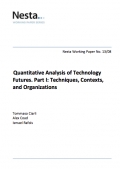 Quantitative Analysis of Technology Futures. Part I: Techniques, Contexts, and Organizations
Quantitative Analysis of Technology Futures. Part I: Techniques, Contexts, and Organizations myForesight: Malaysia's National Foresight Magazine (2nd Edition)
myForesight: Malaysia's National Foresight Magazine (2nd Edition) CfWI Future workforce matters - Issue 3
CfWI Future workforce matters - Issue 3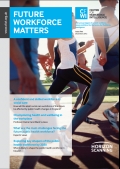 CfWI Future workforce matters - Issue 2
CfWI Future workforce matters - Issue 2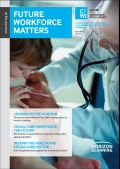 CfWI Future workforce matters - Issue 1
CfWI Future workforce matters - Issue 1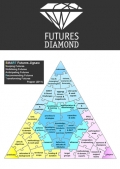 New Horizon Scanning Concepts, Practices and Systems
New Horizon Scanning Concepts, Practices and Systems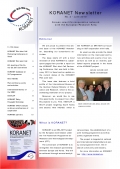 KORANET Policy Foresight Workshop in Vienna/Austria
KORANET Policy Foresight Workshop in Vienna/Austria The Use of Strategic Intelligence and Horizon Scanning
The Use of Strategic Intelligence and Horizon Scanning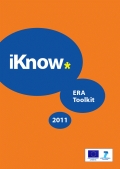 iKnow ERA Toolkit (2011)
iKnow ERA Toolkit (2011)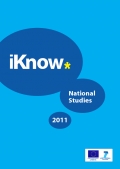 iKnow National Studies (2011)
iKnow National Studies (2011) iKnow Policy Alerts (2011)
iKnow Policy Alerts (2011)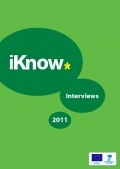 iKnow Interviews (2011)
iKnow Interviews (2011) iKnow Conference - Brussels, 27-28 October 2011
iKnow Conference - Brussels, 27-28 October 2011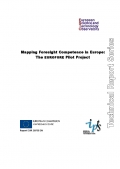 Mapping Foresight Competence in Europe: The EUROFORE Pilot Project
Mapping Foresight Competence in Europe: The EUROFORE Pilot Project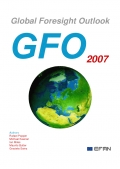 GFO 2007 - Global Foresight Outlook
GFO 2007 - Global Foresight Outlook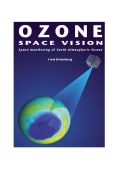 OZONE: SPACE VISION
OZONE: SPACE VISION
iKNOW has been featured in the media and several research projects:
DIE ZEIT (Germany), Financial Times (Germany), El Heraldo (Colombia), Prospective Foresight Network (France), Nationalencyklopedin (Sweden), EFP - European Foresight Platform (EC), EULAKS - European Union & Latin America Knowledge Society (EC), CfWI - Centre for Workforce Intellience (UK), INFU - Innovation Futures (EC), Towards A Future Internet (EC), dstl - Defence S&T Laboratory (UK), EFSA - European Food Safety Agency (EU), Malaysia Foresight Programme (Malaysia), Bulletins Electroniques more...
